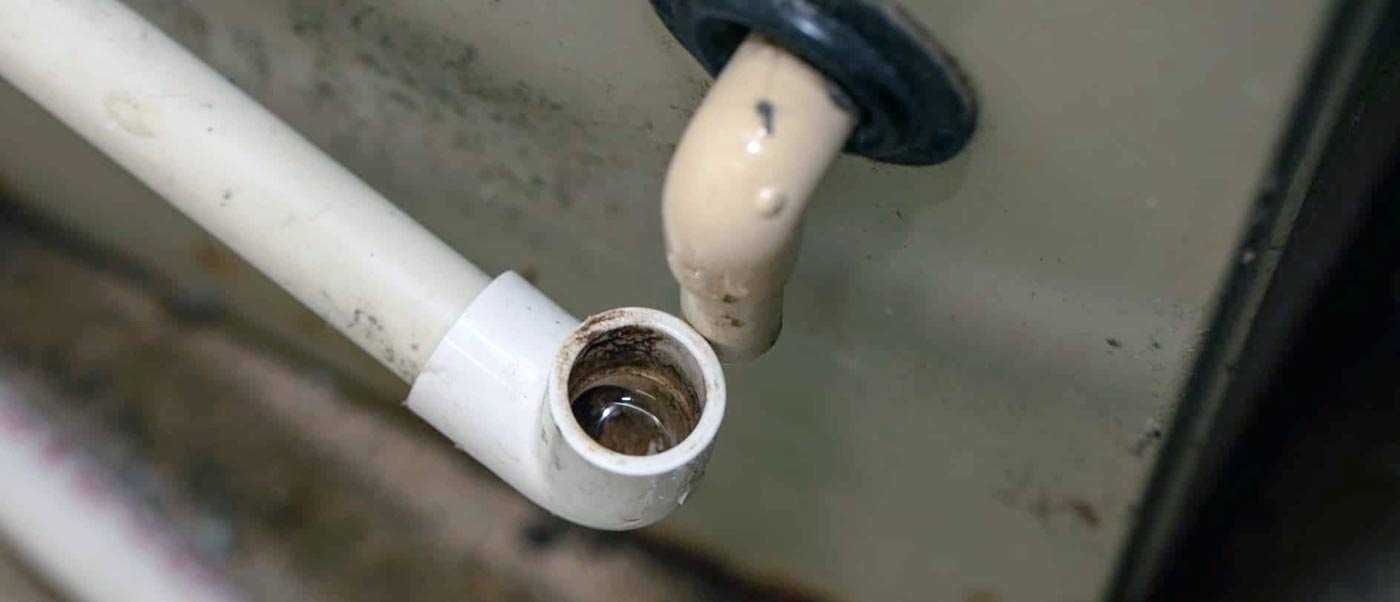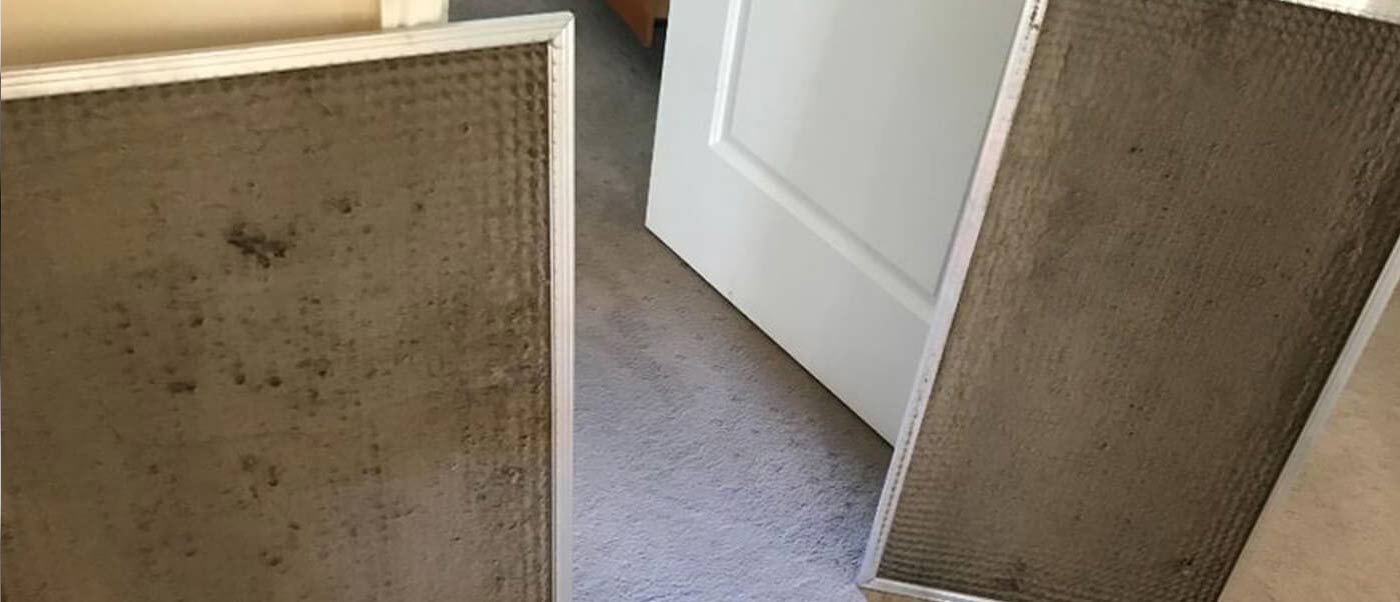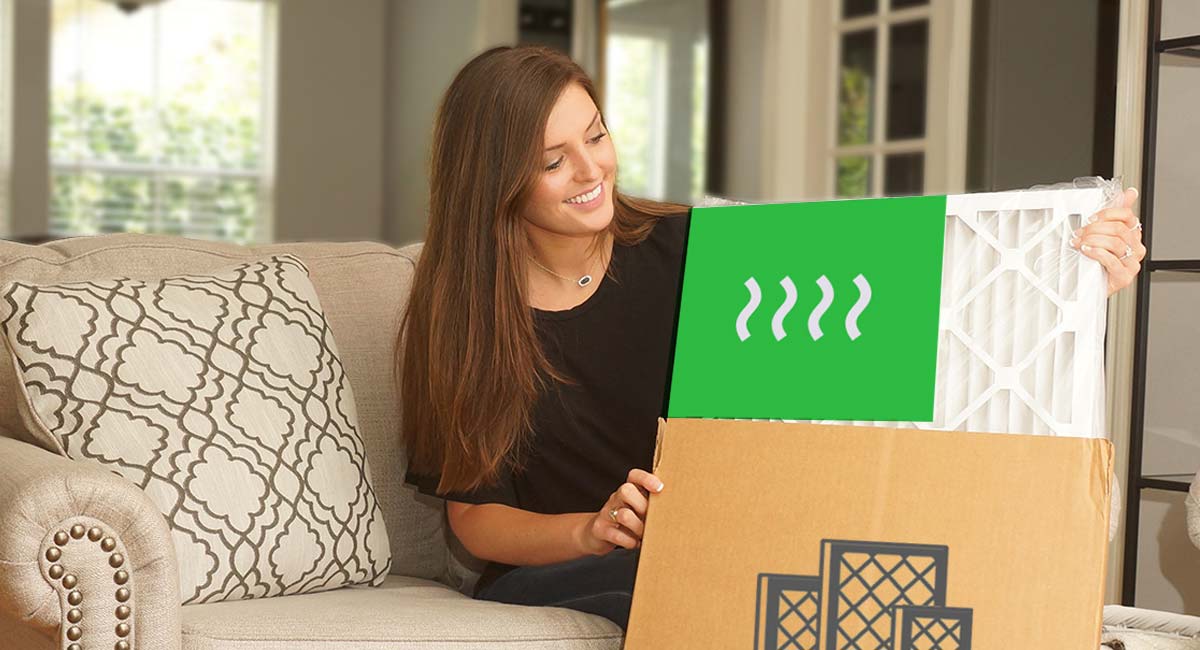
Air conditioning is practically a necessity now, especially during the warm months of summer. But, with Australian weather staying notoriously hot throughout the year, we’re likely to be very reliant on our air conditioning even during non-summer months.
If you’re not careful, they could become a source of trouble. Due to continuously working to make your space cooler, air conditioning systems can develop problems over time – one of the most prevalent issues is water leaks from the main aircon unit.
If you have a leaky air conditioner, you’ll notice drips of water coming out of the unit. This may lead to mould growth inside the system and cause damage to other parts of the house. So why can air conditioners start dripping water indoors?
All air conditioners create some condensation, which is usually collected in a drain tray and drained harmlessly away outside. If water is leaking from the air outlet grille or any other part of your air conditioner unit inside, this is not usual. Leaks occur due to poor installation, faulty parts, and other causes.
Air conditioner leaks can be very frustrating, as they can lead to many health hazards and prevent your air conditioning systems from working efficiently, causing you to experience discomfort when the temperatures go through the roof. If you notice any signs of leakage, then you should contact a professional technician for leaking air conditioners.
Read on to learn all about leaking air conditioners and what to do if you see water dripping inside.
Is Water Leaking From Air Conditioner Dangerous?
If you notice any signs of an indoor air conditioner leak, it is important to address the problem immediately. If the leak is big enough, it could cause damage to your system. You should shut off your air conditioner immediately if you see any signs of leakage.
If there is excessive moisture inside your home, it could cause serious health problems. Mould growth can cause respiratory issues, headaches, nausea, and even asthma attacks. If you see any leaks, call an HVAC technician right away.
If your outdoor air conditioning unit is dripping water, that’s not necessarily an issue – your air conditioner is designed to drain some condensate outside. However, water leaking from your wall unit or ducted unit indoors is always an urgent problem.
What to Do if Your Air Conditioner Is Leaking Water
When it comes to fixing a leaky air conditioner, there are many different ways to approach the task. You should always consider whether you need to contact an expert before doing anything else.
If you are not sure about what you’re doing, then it might be best to ask someone else to help. An experienced technician will be able to tell you if you need to get professional help or not. In some cases, you may need to repair or replace your leaking air conditioner. In others, your AC unit may simply need a thorough clean or drain line clog removed.
Here are the first steps to follow if your AC unit is leaking water indoors:
Stop using your air conditioner
You shouldn’t continue using your air conditioner if it’s leaking excess water. You might think that your air conditioner will still work fine if there is a leak, but it won’t.
Your air conditioner needs to run at a certain temperature to function properly. When the temperature drops, the fan speed must increase to provide additional cooling. A drop in temperature also causes the compressor to slow down. To avoid damaging your air conditioning unit, immediately stop using it if you see it dripping water.
Clean up any water
The first thing you should do if you notice a pool of moisture around your aircon is to clean it up. It’s only a matter of time before that pool of water starts to smell musty, cause damage to your floor, or start to grow mould—and it’s a bit of a safety hazard.
Slip ’N Slides are for outside, so mop up that indoor puddle as soon as you notice it.
While that may seem obvious, you’d be surprised to know how often this gets ignored or forgotten about, especially amid the emotional tizzy that folks can sometimes have in response to a water leak.
If you notice any signs of mould or mildew, then you should contact a professional immediately. Mould can grow very quickly and if left untreated, it will spread throughout your house. You should also check the wiring and electrical connections for any signs of corrosion. These are all potential problems that could lead to serious issues down the line.
Now that you’ve mopped up the mess, let’s get into what caused it in the first place.
Call a professional
Unless you’re an air-conditioning expert, it’s next to impossible to know which one of these problems is causing a system to leak. Regardless of the reason, a leaking air-conditioner is always cause for concern and could be a sign of something seriously wrong with your system.
That’s why I’d recommend calling in the aircon pros so that they can diagnose and fix the problem as quickly as possible.
While you have the pros at your place, it’s also a good idea to have them perform air conditioning maintenance. Not only can regular maintenance prevent problems with your system, but it also keeps your conditioner spick and span, and running as efficiently as possible.

Reasons Your Air Conditioner Is Leaking From the Inside Unit
Having a clear understanding of what causes air conditioning units to leak water can help you fix it or seek professional help when you spot the first signs that could lead to leaks.
So, here are the most common reasons that can cause your air conditioner to leak water:
The drain is clogged
The drain pipe is a critical component of an AC unit as it removes condensate from the evaporator coil in the air conditioner. Over time, this pipe can accumulate all kinds of dirt, debris and algae, which could block it and prevent it from draining the liquid accumulated through condensation.
This can cause the condensate to flow into the main unit and start leaking water.
The good news is that many modern air conditioners have a shutoff feature that kicks in when it detects a clog in the drain pipe, preventing any further damage to the unit.
If your air conditioner shuts off automatically, it could mean that the drain pipe is blocked, and simply cleaning it out can help stop it from leaking. If you’re not sure about cleaning your drain pipe by yourself, ask a professional to do it for you.
If you haven’t had your air con serviced lately, this is likely the problem. A professional technician will be able to rule it out. They’ve got the tools to be able to access the drain and confirm if there’s a clog or not.

Cracked or damaged drain pan
Another common reason for leaks is a cracked or damaged drain pan. Just below the evaporator coil in your air conditioner is a drain pan that catches the condensation coming off the coil. Cracked or damaged pans can allow water to seep through them.
Drain pans may start to rust after years of use, which will eventually damage the drain pan, causing it to lose its ability to hold water and drip water into the main air conditioning unit.
If you have an air conditioner that’s over 15 years old, you could potentially run into this problem—simply replacing the drain pans can prevent a leak. If this is the case, you’ll need a pro to replace your drain pan with a shiny new one.
You should always keep your drain pan free of debris to prevent blockages.
Your air filter is dirty
Air conditioner filters can get dirty over the course of their operation if your air con unit isn’t cleaned regularly. Dirt and grime hinder airflow to the evaporator coil and cause the temperature to drop, leading to freezing. This can cause water to start dripping into the drain pan and eventually cause an overflow.
The air filters must be cleaned at least once a month to remove any dust and dirt.
If you have a wall-mounted air conditioner, you can simply remove and wash the air filter with clean water and some dishwashing detergent, but if you have a ducted air conditioner, it could be more difficult to clean. You may need a professional air conditioning technician with the right tool to help you.
If more condensate than normal begins to flow after the unit is switched off, this is an indication of a dirty air conditioner coil and a more serious problem.

Poor installation
Mistakes when installing your air conditioning system may cause your unit to develop problems down the line. For instance, installing the drain pipe at a higher elevation than the main air conditioning unit could cause the excess water to flow back into the main unit, causing leaks.
That’s why you should always choose a reliable and experienced air conditioning installation company. If this is the cause of your problem, you’ll need an expert to reinstall your AC units in a better configuration. If airflow is the problem, you may be able to install an air deflector to boost your AC’s performance.
Low refrigerant gas levels
Low levels of refrigerant gas could cause the pressure inside the air conditioning system to fall. This may cause the evaporator coils to freeze up and cause water in the drainage pan to overflow.
If this is the case, you’ll need to get the source of the leak fixed and the gas replaced. Only a licensed air conditioning technician can regas your air conditioner, so this is definitely a job for a professional.
The condensate pump is faulty
The condensation pump is a feature of some air conditioners that have their drainage units placed above the main unit and helps drain out the excess water. When the pump doesn’t work, the drain pan will fill up with water and start to leak.
For those of you who have your AC installed in your basement or area where it’s difficult to run an external drain line, the condensate pump that works hard to push all of the accumulated moisture outside.
If this is the case, a pro will be able to refurbish/flush or replace your pump so that you won’t have any more leakage.
Pest problems
Wasps, geckos, and possums are just a few of the pests that may be found in Australia. The drain holes of your AC unit might be blocked by these creatures, which can cause water leaks.
Nests for wasps, gecko lizards, and possums are frequently found in confined locations, resulting in water pooling around the AC unit. This can result in a leaking split system due to issues with air flow and moisture removal.
Leaking Air Con FAQs
Why Does My Air Con Leak in Summer?
There is a reason why you may see your air conditioner dripping from the vent in summer. Excess humidity in the air and having the temperature set too low can overtax your air con unit, meaning it’s more prone to leaks in hot, humid weather.
Summer is the primary period for leaking air-conditioning systems. During this time, call-out requests for breakdowns or ceiling damage due to air-conditioning water leaks are at their most frequent. Summer can be a real test, not only of your system’s performance but on how well it has been maintained over the past year.
The good news is that water leaks can very easily be prevented!
So, that’s what I’d like to talk about here today: what to do if you’re one of those folks who notice that their air con is sweating buckets — just like you — in this extreme heat. Cheap air conditioners are especially prone to dripping water when the weather is hot.
Australia is especially humid during the summer, and if you don’t take precautions, your air conditioner may start leaking water. If you’re experiencing water leakage from your air conditioner, there are a few things you can do to help prevent it.
Firstly, make sure all of the windows and doors are closed before starting the aircon. This helps keep humidity in the house under control.
Additionally, try not to set the temperature too low – setting it to 24 degrees is the best temperature for your air conditioner during summer as it’s energy-efficient and won’t cause the air conditioner to work harder than necessary.
Why Is My Ducted Air Conditioner Leaking Water in the Roof?
If water is coming from your air conditioner and leaking through the ceiling, it’s probable that you have a clogged drain which is causing the safety tray to overflow. If your ducted system has a backed-up drain, water will start to overflow into the safety tray situated beneath it in your roof space. Water will flow onto the ceiling if the safety tray drain is clogged, posing a significant risk of costly damage.
If water from your ducted air con is coming through the ceiling, you should call an air conditioning technician ASAP. Ducted air conditioning leaking into the ceiling can be prevented by regular ducted air con maintenance.
Why Is Water Dripping From Walls When Running My Ducted Air Conditioner?
If you have a leaky duct, moisture will get sucked into the house along with the cool air. Once there, it will mix with the warm air in the ducts causing condensation to form. Condensation can drip down the walls and ceilings, ruining the appearance of your home.
Air leaks from your ductwork will also increase the cost of running your ducted air con, so it’s important to address these issues as quickly as possible.
Thankfully, this problem can be solved with air con ductwork repair or ductwork replacement, meaning you won’t need to replace your air conditioning unit.
How to Prevent Air Conditioner Leaking
Regularly scheduled maintenance will help keep your system running at peak efficiency, preventing AC water leaks before they happen. You should also consider an annual tune-up to ensure proper airflow and filter cleaning.
Maintenance checks and tune-ups can increase the lifespan of your system. That means you won’t have to worry about forking out the cash for a new one every ten years.
Clean Your Air Con Filter Regularly
The air conditioner filter should be cleaned every month. The easiest way to clean an air conditioner filter is by vacuuming it.
First, remove the filter from the air conditioner. Then, use a vacuum cleaner to clean off any dust or dirt on the filter. Finally, replace the filter back in the air conditioner.
If the filter is particularly dirty, you can also soak it in a bath of soapy water and then rinse it off.
f your AC unit’s filter is worn out, excessively dirty or mouldy, talk to an air conditioning service provider about getting professional air conditioning cleaners to help you out or filter replacement. You can even upgrade to a higher-performing filter at the same time, such as a MERV 13 filter, to improve your indoor air quality.
Repair Any Problems Promptly
You should take care of any problems with your air conditioner as soon as possible. If you notice signs that it’s faulty, then get in touch with an AC repair expert to check things out and fix up the issue for good!
If any parts are broken or worn out, then you should get them replaced immediately. This avoids overtaxing your AC system and causing further damage.
For ducted air conditioning, ensure ductwork is kept in good condition and any air leakage is prevented.
Service Your Air Conditioner Before Summer
The most important thing you can do to prevent your air conditioner leaking water is to service your air con before summer – the hottest and most humid time of year. If lack of maintenance has caused your air con’s performance to decline, you’re likely to overtax it and set off a water leak.
Many people don’t consider their air conditioner before the peak of summer hits. There are some things you only think about during certain times of the year. When was the last time you thought about whether you were wearing sunblock in the middle of winter? Conversely, when was the last time you thought about having a cup of hot chocolate during one of Sydney’s summer heat waves?
You probably don’t tend to do either of those things all that often, do you? And, I’m just guessing here, but you also probably don’t think about your air con maintenance much during the middle of winter or spring — if all is going well, that is. I guess that’s why we get a panicked phone call from time to time from folks who want to know what to do about their air-conditioning leaking water in summer.
Remember, if you do experience a leak this summer, don’t sweat it. Just keep in mind that the sooner you call a pro, the sooner you can go back to enjoying your peaceful, cool home. If you leave it too long, though, bigger issues could develop with your unit and you could be without an air conditioner. And in this Sydney summer heat, I wouldn’t wish that on anyone.
Need a Dripping Air Conditioner Fixed?
Water leaks can go from being a minor annoyance to a major problem for homeowners, but when you service and maintain your air conditioner regularly, it can serve you for many years to come.
We at Alliance Climate Control specialise in air conditioning maintenance and when you work with us, you can rest easy knowing your air conditioning unit is in the right hands.
Call us on 02 8061 5023 and consult our air conditioning specialists today.







